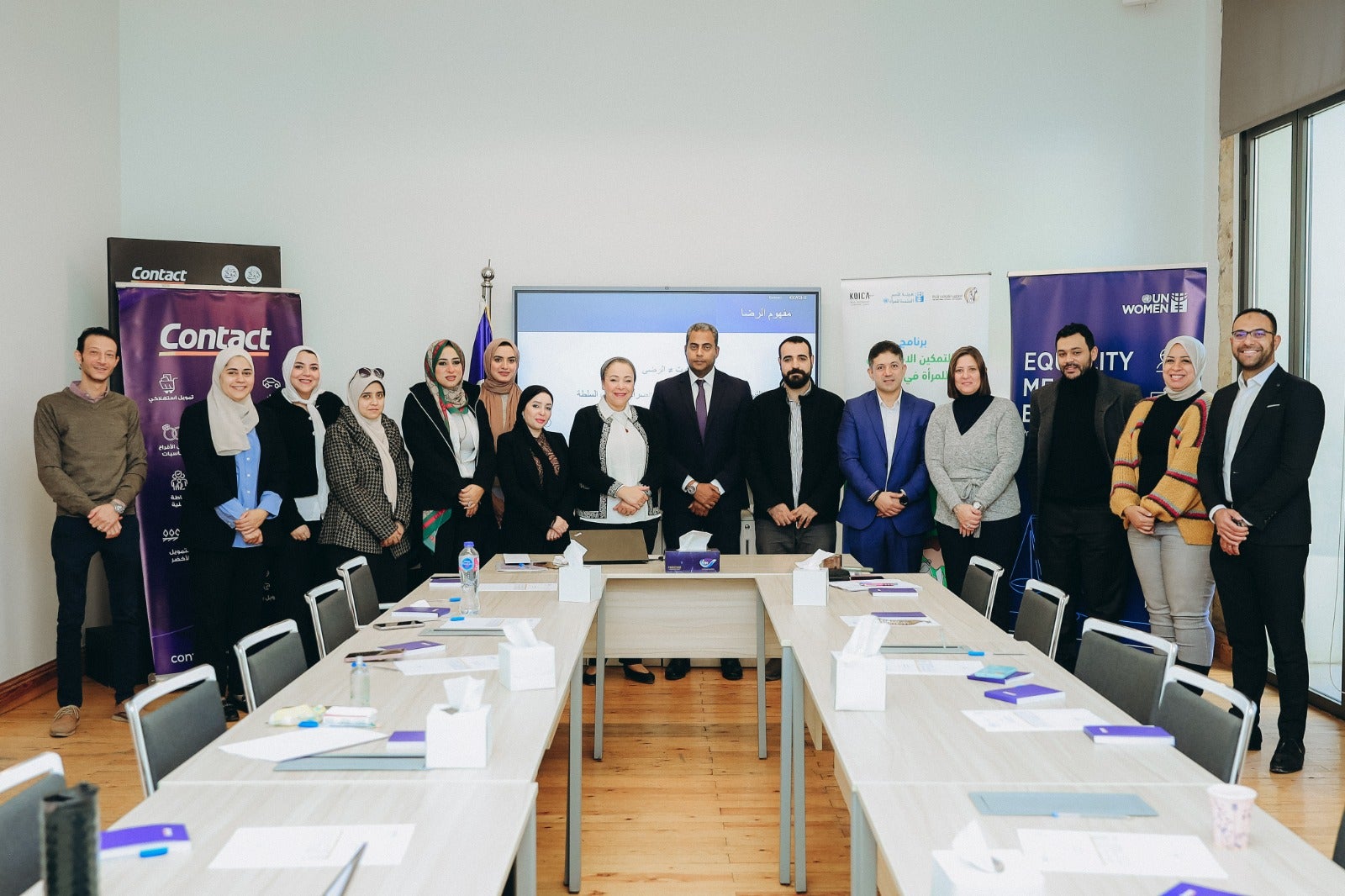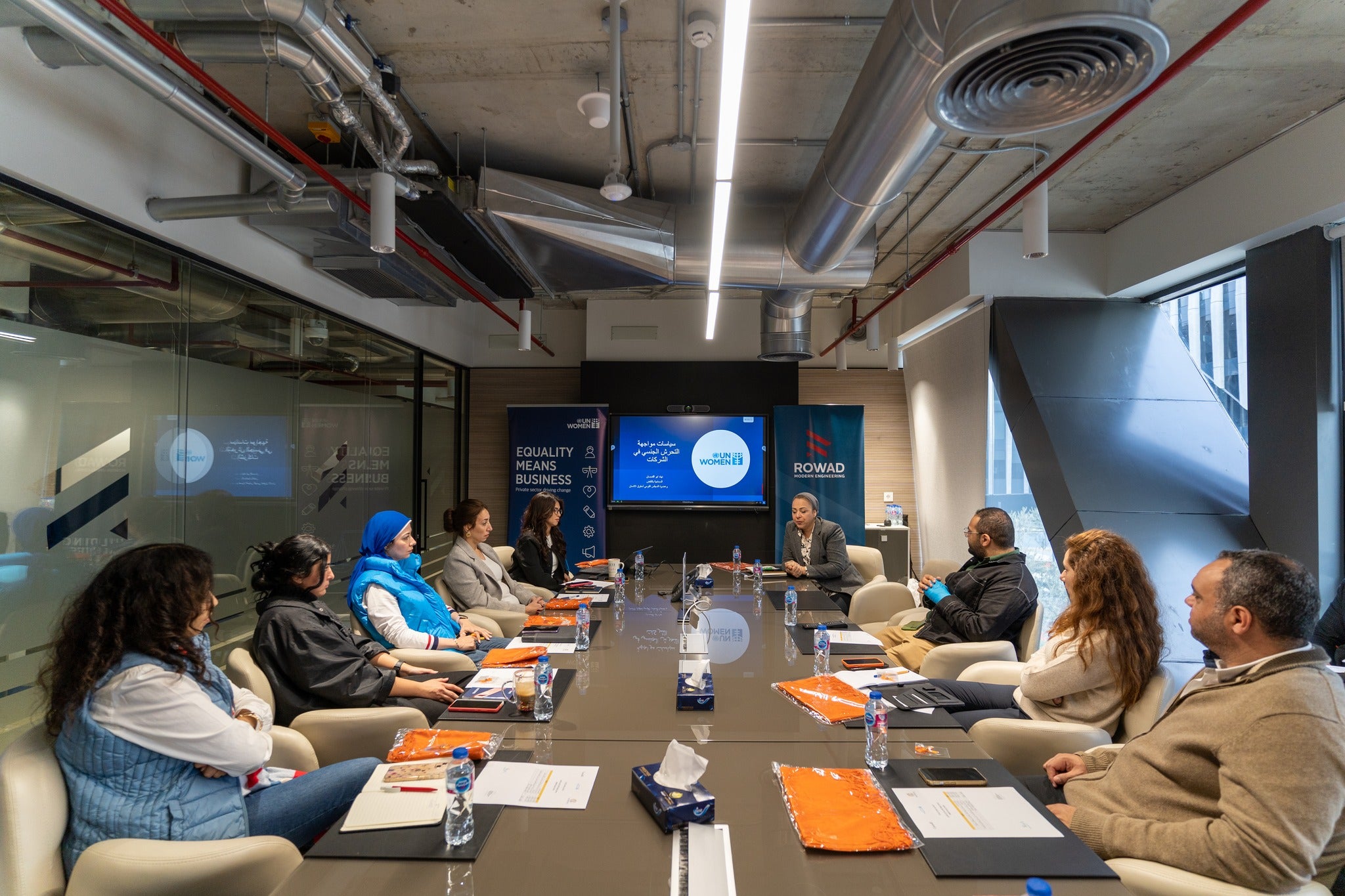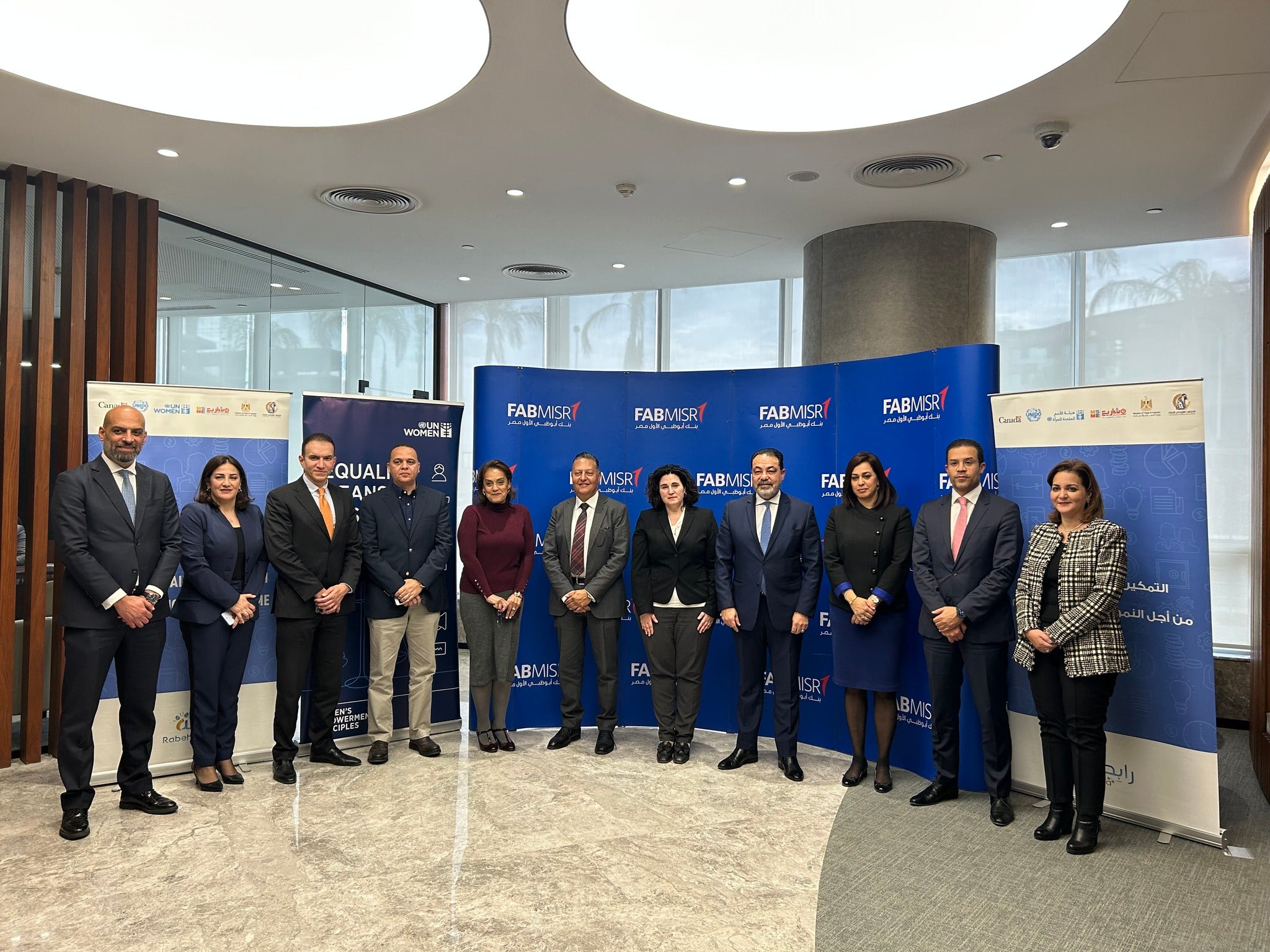The crucial role of the private sector in advancing women’s empowerment
Date:
UN Women Egypt engages with the private sector in advancing gender equality and women’s empowerment (GEWE), particularly in the workplace. The main tool used for private sector’s engagement is the Women’s Empowerment Principles (WEPs), established by UN Women and the UN Global Compact. The WEPs are a set of seven principles that offer guidance to business on how to advance gender equality in the workplace, marketplace, and community.

WEPs are a primary vehicle for corporate delivery on GEWE and it supports the advancement of Egypt’s Vision 2030 and the National Strategy for the Empowerment of Egyptian Women 2030, and the United Nations Sustainable Development Goals (SDGs). The WEPs support private sector in meeting the measures put forward by the Government of Egypt and its regulatory bodies to advance women’s leadership.
By joining the WEPs community, the Chief Executive Officer (CEO) signals commitment to GEWE at the highest levels of the company, and to work collaboratively in multistakeholder networks to foster business practices that empower women. These include equal pay for work of equal value, gender-responsive supply chain practices and zero tolerance to sexual harassment in the workplace.
In Egypt, UN Women encourages the private sector to join the WEPs by providing orientation sessions on the seven principles; sharing evidence on the benefits that companies gain by promoting gender equality in the workplace; and briefing them on the technical support that UN Women offers to the signatories. In partnership with the Ministry of International Cooperation and the National Council for Women, signing the WEPs is now part of the “Closing the Gender Gap Accelerator”, and is a key tool to support national priorities under the National Strategy for the Empowerment of Egyptian Women 2030.

The commitment of CEOs and top managers encourages the implementation of the WEPs to take a top-down approach which secures consistency and dedication of all company personnel. UN Women urges the formation of a dedicated WEPs team from various departments inside each company to lead on the WEPs implementation process which helps expedite the process and progress towards achieving GEWE in the workplace.
“Promoting gender equality in the workplace is essential for fostering a diverse and inclusive environment, gender equality is one of the fundamental beliefs held by Contact's top management. Recognizing the crucial role of women in society, the WEPs programme assists in enhancing women's positions and offers models for achieving work-life balance, which are duly acknowledged,” mentioned Safeya Borhan; Board Director at Contact Financial Holding, and Group Corporate Affairs, Governance and Sustainability Director.
After signing the CEO statement of support, UN Women Egypt provides support throughout the WEPs journey, starting from conducting the gender gap analysis to developing of the gender action plans and reporting.
Among the services and technical support that UN Women provides private sector are employee trainings on gender equality and women’s empowerment including addressing gender bias in the workplace; reviewing of and/or developing policies on sexual harassment at the workplace and provision of trainings on these policies to employees and supervisors; awareness- raising sessions for both women and men employees on positive parenting and shared caregiving responsibilities; technical support to businesses to diversify their supply chain to incorporate more women-owned businesses; and a training scholarship programme to help women employees acquire certified trainings on corporate leadership, management as well as professional development programmes that aim at supporting their placement on corporate boards.

“Joining the WEPs is important because it provided a framework for our company to advance gender equality and women's empowerment. By joining the WEPs, we commit to taking action on gender equality issues and in order to do that we were offered by UN Women costumed workshops based on our industry and its nature, which led to positive changes in the workplace culture and practices,” stated Sara Yassin; Corporate Social Responsibility Manager at Rowad Modern Engineering.
As of February 2023, 102 companies from different sectors in Egypt have joined the WEPs. More than one third of the WEPs signatories in Egypt are under UN Women’s ECO’s programmes. UN Women has led by example on the leniency, flexibility, and adaptability of the WEPs and the wide range of different possible intervention approaches from which companies can benefit.
UN Women Egypt’s will continue to support the above, as well as work on expanding the WEPs signatories’ network to include companies from various governorates across Egypt. As for the services provided, UN Women Egypt plans on delivering specific trainings for multiple companies on various topics such as gender-responsive marketing as well as developing gender-sensitive mentorship programmes. UN Women Egypt is also embarking on engaging more companies from male-dominated industries to increase women’s opportunities and representations in non-traditional sectors.